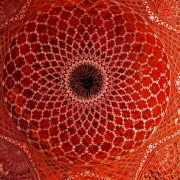Beyond Atoms and Accidents Fakhr al-Dīn al-Rāzī and the New Ontology of Postclassical Kalām – Bilal Ibrahim
Abstract:
“This article explores a novel approach to the analysis of the external world in postclassical Ashʿarite kalām. While discussions of physical reality and its fundamental constituents in the classical period of Islamic thought turned chiefly on the opposing views of kalām atomism and Aristotelian hylomorphism, in the postclassical period kalām thinkers in the Ashʿarite tradition forge a new frame of inquiry. Beginning most earnestly with the philosophical works of Fakhr al-Dīn al-Rāzī, a critical approach is developed addressing received views in ontology, including the relation of substance to accident, the status of Aristotelian form and matter, and part-to-whole relations. Drawing on Rāzī’s al-Mulakhkhaṣ and al-Mabāḥith, kalām thinkers develop several concepts to distinguish arbitrary or mind-dependent (iʿtibārī) composites (‘man-plus-stone’) from non-arbitrary composites (e.g., tree, paste, and house). Most notably, they adopt a substance-plus-accident ontology in opposition to the Aristotelian hylomorphism of falsafa. The mutakallimūn will conceive of composites as possessing ‘real unity’ (ḥaqīqa muttaḥida) while dispensing with the explanatory and causal role of Aristotelian substantial forms”



